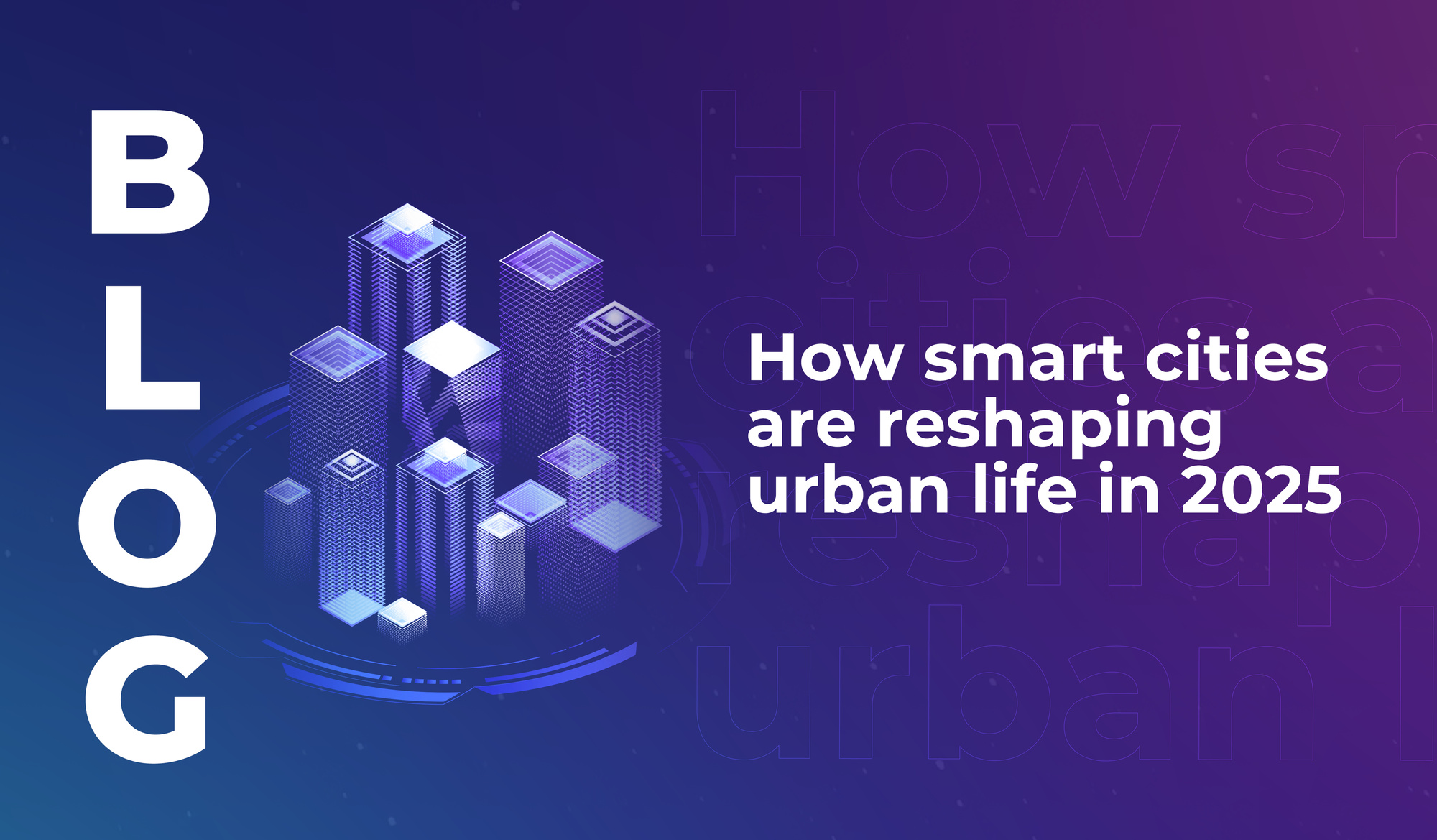
Why the future of global sports tech is being prototyped in Saudi Arabia
Why Saudi Arabia is emerging as a testbed for global sports tech – from smart venues and esports to system-level innovation at LEAP 2026.


Smart cities are part of our lived reality around the world today, and 2025 is shaping up to be a defining year. Tech is enhancing urban living, and allowing us to create sustainable solutions to urban problems.
The way we interact with urban environments is now mediated by tech. And we’re using it to create more inclusive communities, and push for collaboration between governments, businesses, and citizens.
LEAP speaker Kris Libunao (Executive Director and Chief Sustainability Officer at SmartCT) has been at the forefront of smart city development in the Philippines and other developing countries. For her, technology isn’t just about efficiency; it’s about creating a better quality of life for everyone.
Libunao’s journey into the world of technology and smart cities was, in some ways, unexpected. “It's strange how life can have unexpected twists and turns. My career in technology almost happened by serendipity,” she said.
She was pursuing a career in law when she found herself drawn to urban planning and the intersection between policy, technology, and management. And now she believes that her non-tech background is actually an asset – because it allows her to approach challenges from a broader perspective.
That multidisciplinary approach is crucial in smart city development, because it’s as much about people and policy as it is about tech. Success relies on collaboration between governments, private organisations, and local communities.
“Private and public entities have to embrace openness if they want to improve the development of smart cities. That is: open data, collaboration, and inclusivity,” Libunao said. We need accessible data, cooperative problem-solving, and a commitment to making sure that no one is left behind.
This sentiment is echoed by many urban development experts. Across the world, cities are recognising the importance of open data in creating more efficient and responsive services. For example, Singapore’s Smart Nation initiative is heavily based on data-driven decision-making, while in Europe, cities like Amsterdam have developed platforms that allow citizens to contribute to urban development plans through digital participation tools. The more inclusive the planning process, the better the outcomes are for everyone.
One of SmartCT’s biggest milestones has been its work on open data policies.
“Building on our accomplishment of passing the first open data policy at the local level in the Philippines, SmartCT continues to encourage stakeholders in various sectors like smart mobility to embrace open data practices,” Libunao said.
Open data is key to making cities more efficient, allowing different sectors to share valuable insights and develop innovative solutions.
But having access to data isn’t enough. People need to understand it. That’s why SmartCT is increasingly focused on data literacy. “Looking ahead, one area of focus is data literacy for smart cities. We will be more actively involved in community engagement and participatory data initiatives as we believe in the power of involving local communities in data collection, analysis, and decision-making.”
This grassroots approach to data is crucial. When citizens are empowered with knowledge, they can make better use of digital services, hold governments accountable, and even contribute to the development of smart city solutions themselves.
If tech is the backbone of smart cities, then sustainability is the heart. “I believe that sustainability is the secret ingredient in smart city development,” Libunao said.
Because smart cities aren’t just about convenience; they should improve quality of life and enable equal opportunities for citizens, and at the same time, protect the environment into the future.
But this isn’t easy to achieve. “One major challenge is persuading people and organisations to put it above short-term gains,” Libunao added. Businesses often focus on immediate financial returns rather than long-term environmental and social benefits. And integrating sustainability into existing infrastructure can be complex and resource-intensive, with regulatory hurdles and sectoral collaboration also slowing down progress.
Despite these obstacles, sustainability remains non-negotiable. Cities around the world are integrating smart grids, renewable energy, and efficient public transport systems to reduce their carbon footprint. For example, Oslo has made significant strides in becoming one of the world’s first zero-emission cities – thanks to its commitment to electric mobility and green urban planning.
As we move deeper into 2025, the evolution of smart cities continues to accelerate. Governments and businesses are acknowledging that tech on its own isn’t everything; that we need to take a holistic approach, one that includes policy innovation, public participation, and a strong commitment to sustainability.
Libunao’s work with SmartCT reflects this vision. By championing open data, promoting digital literacy, and embedding sustainability into city planning, she and her team are setting a precedent for other cities to follow.
“The path to sustainability in smart cities is not easy. We must alter our mindsets, increase awareness, and manage complex systems. This is why sustained collaboration at the onset of any smart city project is crucial.”
We expect to see a shared focus on inclusivity, sustainability, and people-centred innovation as a wide variety of stakeholders work to collaborate on smart city futures. Whether it’s through better data access, improved public transport, or greener urban planning, the cities of the future will be defined not just by their technology, but by how well they serve their people.
That’s the true promise of smart cities in 2025. Want to learn more from smart city experts, and discover the latest technologies that are transforming cities? Register now to attend LEAP 2026.

Why Saudi Arabia is emerging as a testbed for global sports tech – from smart venues and esports to system-level innovation at LEAP 2026.

How sports tech is moving beyond sponsorship into core infrastructure – transforming performance, venues and fan engagement at LEAP 2026 Sports Tech Hub.

Learn how global brands use events to enter new markets. Build trust and accelerate relevance through CoLAB collaborations at LEAP.

Why Saudi Arabia is emerging as a testbed for global sports tech – from smart venues and esports to system-level innovation at LEAP 2026.

How sports tech is moving beyond sponsorship into core infrastructure – transforming performance, venues and fan engagement at LEAP 2026 Sports Tech Hub.

Learn how global brands use events to enter new markets. Build trust and accelerate relevance through CoLAB collaborations at LEAP.